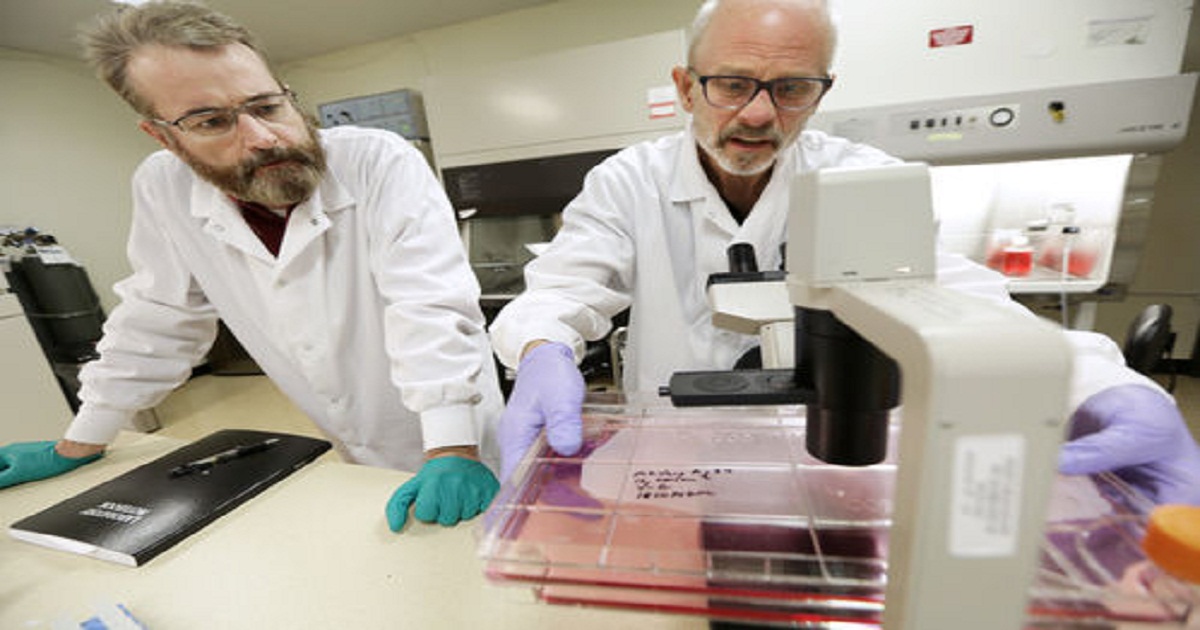
MedTech
Article | July 12, 2022
With advances in data analytics and machine learning, the move from descriptive and diagnostic analytics to predictive and prescriptive analytics and controls—allowing us to better forecast and understand what will happen and thus optimize process outcomes—is not only feasible but inevitable, according to Bonnie Shum, principal engineer, pharma technical innovation, technology & manufacturing sciences and technology at Genentech.
“Well-trained artificial intelligence systems can help drive better decision making and how data is analyzed from drug discovery to process development and to manufacturing processes,” she says.
Those advances, though, only really matter when they improve the lives of patients. That’s exactly what Shum expects.
“The convergence of digital transformation and operational/processing changes will be critical for the facilities of the future and meeting the needs of our patients,” she continues. “Digital solutions may one day provide fully automated bioprocessing, eliminating manual intervention and enabling us to anticipate potential process deviations to prevent process failures, leading to real-time release and thus faster access for patients.”
To turn Bioprocessing 4.0 into a production line for precision healthcare, real-time release and quickly manufacturing personalized medicines will be critical. Adding digitization and advanced analytics wherever possible will drive those improvements. In fact, many of these improvements, especially moving from descriptive to predictive bioprocessing, depend on more digitization.
Read More

Medical
Article | August 16, 2022
Gene therapy has historically been used to treat disorders with in-depth knowledge caused by a single genetic mutation. Thanks to the introduction of new generation technologies, the potential of gene therapy is expanding tAo treat diseases that were previously untreatable.
Evolution of Gene Therapy
One of the major success stories of the twenty-first century has been gene therapy. However, it has not been the same in the past. The field's journey to this point has been long and mostly difficult, with both tragedy and triumph along the way.
Initially, genetic disorders were thought to be untreatable and permanently carved into the genomes of individuals unfortunate enough to be born with them. But due to the constant technological advancement and research activities, gene therapy now has the potential to treat various genetic mutation-causing diseases with its ability to insert a new copy and replace faulty genes.
Gene Therapy is Finding New Roads in the Medical Sector
Gene therapy can help researchers treat a variety of conditions that fall under the general heading of epilepsy, instead of only focusing on a particular kind of disorder brought on by a genetic mutation. Following are some of the domains transformed by gene therapy.
Neurology – Gene therapy can be used for the treatment of seizures by directly injecting it into the area causing an uncontrolled electrical disturbance in the brain. Furthermore, by using DNA sequences known as promoters, gene therapy can be restricted to specific neurons within that area.
Ophthalmology – Genetic conditions such as blindness can be caused due to the mutation of any gene out of over 200 and resulting in progressive vision loss in children. With advanced gene therapies such as optogenetics, lost photoreceptor function can be transferred to the retinal cells, which are responsible for relaying visual information to the brain. This might give patients the ability to navigate in an unknown environment with a certain level of autonomy.
The Future of Gene Therapy
The news surrounding gene therapy has been largely favorable over the past few years, with treatment after treatment obtaining regulatory approvals, successful clinical trials, and garnering significant funds to begin development. With more than 1,000 clinical trials presently underway, the long-awaited gene therapy revolution might finally be here.
Read More

MedTech
Article | September 22, 2022
Whether it’s called a modern “Manhattan Project” or a medical moon shot, the concept of long-term economic recovery rests on how confident people are they won’t risk serious illness by venturing forth in public again. Wisconsin stands to be a significant part of such an undertaking, whatever it’s called. The shorter-term debate is well under way over the gradual lifting of COVID-19 emergency rules, such as the now-extended “safer-at-home” order in Wisconsin. At least a dozen states, including regional coalitions on the East and West coasts, are exploring next steps as they seek to balance responses to the virus with calls for reopening the economy, at least, in part. Wisconsin’s ability to shape longer-term responses will come from private and public resources, which range from companies engaged in production of diagnostics.
Read More

MedTech
Article | September 22, 2022
Introduction
The administration of medical records and data has advanced significantly during the past few decades. Clinical data management, which was once only a small subset of biotech research organizations, has now developed into a mission-critical, specialized unit.
In the late 1990s, electronic data capture (EDC) began to alter the traditional function of clinical data management. After that, the data configuration and management of data queries for the EDC system fell under the purview of clinical data management services.
Today, clinical data management is not only responsible for managing the clinical data configuration and data queries but also developing and implementing data administration plans, ensuring data accuracy and completeness, and maintaining optimum data security.
In recent years, as digital technologies have gained acceptance around the globe, data has become a vital aspect in decision-making across numerous industries, and the life sciences and biotechnology sectors are no exception. Using data has provided granular insights to biotech organizations, assisting them in creating breakthroughs in drug development and medical research and signifying the importance of clinical trial management systems in these medical verticals.
The Biggest Biotech Clinical Data Management Trends to Know About Today
The future of clinical data management is contingent upon the implementation of systems and regulations. It is imperative for all organizations participating in a medical or life science trial to have transparent rules in place for sharing and retaining patient data. Also, there is a need to have a standardized format for maintaining these records and documents related to trials. This assists biotech organizations in reducing the chances of ambiguity regarding who owns what kind of data or paperwork at any given time.
Over the past couple of years, the focus of the life science and biotechnology industries has shifted towards developing more effective medications and therapies, implementing personalized treatment, and finding cures for diseases such as cancer and AIDS. In response to this, a substantial rise in the number of clinical trials is being witnessed globally.
As the number of clinical trials continues to accelerate, the spending on these trials rises as well. In response to this, the worldwide cost of conducting clinical trials is anticipated to reach US$ 49.80 billion in 2022.
With the transition of the world from traditional to digital, medical professionals and biotech businesses are increasingly shifting towards adopting high-tech and reliable clinical trial management systems for various applications, starting from diagnosis and clinical trials to patient data documentation. But, what are the future trends in biotechnology clinical data management? Let’s discuss.
Cloud-Based Clinical Metadata Repositories
Automation is emerging as a new frontier in the biotech clinical data management domain, along with other innovative technologies such as artificial intelligence and machine learning. Because of this, life science establishments are witnessing a huge shift from paper-based documentation toward data-based documentation, which is creating mountains of research, compliance, and clinical data.
The growing demand for new and more effective medications and drugs is augmenting the need to expedite clinical trials. This is resulting in an increased number of initiatives aimed at optimizing clinical trial processes to prepare and launch successful trials. However, pharmaceutical and biotechnology laboratories are encountering several challenges in collecting, managing, and analyzing metadata due to its complexities.
So, what is the best solution to this problem? The answer to this is cloud-based clinical metadata repositories.
Clinical research facilities are leveraging advanced, all-in-one, cloud-based clinical metadata repositories to assist them in centralizing and managing metadata; increasing metadata quality, consistency, and accuracy; and speeding up clinical trial management, documentation, and compliance processes.
Shift Towards Digital Solutions
Electronic Case Report Form
Adequate research and accurate data are crucial for a clinical trial to succeed. Whether developing new drugs, medication, or therapies; conducting life science research; or studying the latest clinical trial systems, it is best to use electronic solutions as it reduces the room for mistakes during the transition of clinical data from paper-based format.
Realizing this, biotech organizations are shifting towards using electronic case report forms to speed up record retrieval, improve record security, and cut down on operational costs associated with running clinical trials. The electronic case report form assists in lowering the failure rate of the clinical trial, enhancing efficiency, and optimizing security along with improving clinical trial documentation and productivity, further driving its adoption in the medical space.
Electronic Clinical Outcome Assessment
Electronic clinical outcome assessment is surfacing as one of the fast-growing future trends in biotechnology. It allows clinical trial facilities to automate data entry and improve the reliability of the collected information. The technology enables clinical trial institutions to automatically record patient-provided information about side effects, symptoms, drug timing, and other aspects during the clinical trial for increased precision.
It also helps these institutions analyze the results of medication or therapy in clinical trials and lets clinical researchers use medical technologies like biosensor-enabled devices, self-service applications, and medical wearables for evaluation.
Hence, biotech clinical facilities are increasingly deploying advanced electronic clinical outcome assessment systems to ensure adherence to protocols and regulations.
Clinical Trial Customization
The success of a new drug is determined by numerous factors other than its effectiveness, safety, and creativity of its developers, such as a successful clinical trial. Each clinical trial involves a number of decision-making points, and one wrong choice in any of these aspects can jeopardize the success of the entire endeavor. A crucial component of making well-informed decisions is data management, which is a part of clinical study as a whole.
Clinical trial customization is emerging as one of the most prominent biotech clinical trial management trends. Every clinical trial is unique and needs a tailored approach to be successful. With the emergence of the trend of personalized treatment around the globe, biotech and pharmaceutical organizations are adopting innovative customized clinical trial management solutions to accelerate the pace of clinical trials and approvals. This is giving clinical researchers innovative ways to come up with new medicines for patients and streamline the clinical data as per the requirements for faster approvals.
What Are the Key Clinical Data Management Challenges Faced by Biotech Companies?
Groundbreaking medical interventions are of no use without reliable, accurate, and extensive clinical trial data. Without the data, biotech and pharmaceutical companies will not be able to provide the assurance of safety and efficacy required to bring the medication to market.
Regulatory bodies such as the Food and Drug Administration (FDA), the Medicines and Healthcare Products Regulatory Agency (MHRA), and others are putting stricter rules in place to ensure the quality of clinical data. In addition, the fast-changing clinical development environment is creating more obstacles for biotech and medical spaces to ensure the accuracy, standard, and completeness of the clinical trial data. Hence, clinical teams are spending valuable time cleaning up data instead of analyzing it.
Time spent trying to figure out issues with clinical trial data is detrimental and expensive but also mission-critical. This is because a small issue in the data can lead to numerous consequences, from small delays to calamitous setbacks, making it necessary to rerun clinical trials. This problem will only get more challenging to address as the volume of data and the types of data sources continue to grow. Here are some of the major clinical data management challenges that biotech firms encounter
Standardization of Clinical Metadata
Stringent Regulatory Compliance
Increased Clinical Trial Complexity
Mid-Study Changes
Why Are Clinical Data Management Systems Garnering Popularity in the Biotech Industry?
With the changing regulatory and clinical landscape, biotech and pharmaceutical companies are facing several obstacles in the management of clinical data and clinical trials. In addition, regulatory agencies are moving toward integrated electronic systems, which is making it more and more important for clinical laboratories to change the format of their submissions.
Because of this, several biotech clinical labs are focusing on adopting innovative laboratory solutions, such as biotech clinical data management systems, to meet the need for standardized data inputs and replace all manual ways of working with electronic systems.
A clinical data management system establishes the framework for error-free data collection and high-quality data submission, resulting in speedier drug discovery and shorter time-to-market. These solutions are gaining huge traction among biotech and pharmaceutical companies, owing to their ability to effectively manage clinical data, accelerate clinical trials, and ensure compliance.
Let’s see some of the features of biotech clinical data management software that are most sought after by life-science companies
Controlled, standardized data repository.
Centralized data analysis and administration.
Reduced operational expenditures for clinical data processes.
Enhanced process effectiveness.
Superior submission quality
Compliance with predefined standards.
Clinical Data Management Systems: The Future
The role of clinical data management systems is evolving at a rapid pace as the life science and medical industries continue to incorporate digital solutions for diverse operations. These systems are being used in a variety of biotech clinical settings, ranging from clinical data compliance to data science and analytics, to help them analyze large and growing volumes of clinical data.
Hence, a number of high-tech medical companies are aiming at integrating innovative technologies, such as artificial intelligence and machine learning, into clinical data management software to automate clinical data management tasks, improve clinical data submission, and enhance data quality.
These new biotech clinical management technologies are anticipated to help life science laboratories gain a better understanding of diseases and speed up clinical trials in the coming years.
FAQ
What is a clinical data management system?
A clinical data management system (CDMS) is a tool used in clinical research to track, record, and manage clinical trial data across medical establishments such as biotech laboratories.
What are the key functions of the biotech clinical data management system?
Some of the key functions of biotech clinical data management system are
Documentation of Protocols and Regulations
Patient Recruitment
Real-time Clinical Study Analytics
Reporting
Investigator Relationship Management
Electronic Visit Report
Why is a clinical data management system needed for clinical trials today?
A clinical data management system helps shorten the time from drug development to marketing by assisting in the collection of high-quality, statistically sound, and accurate data from clinical trials.
Read More